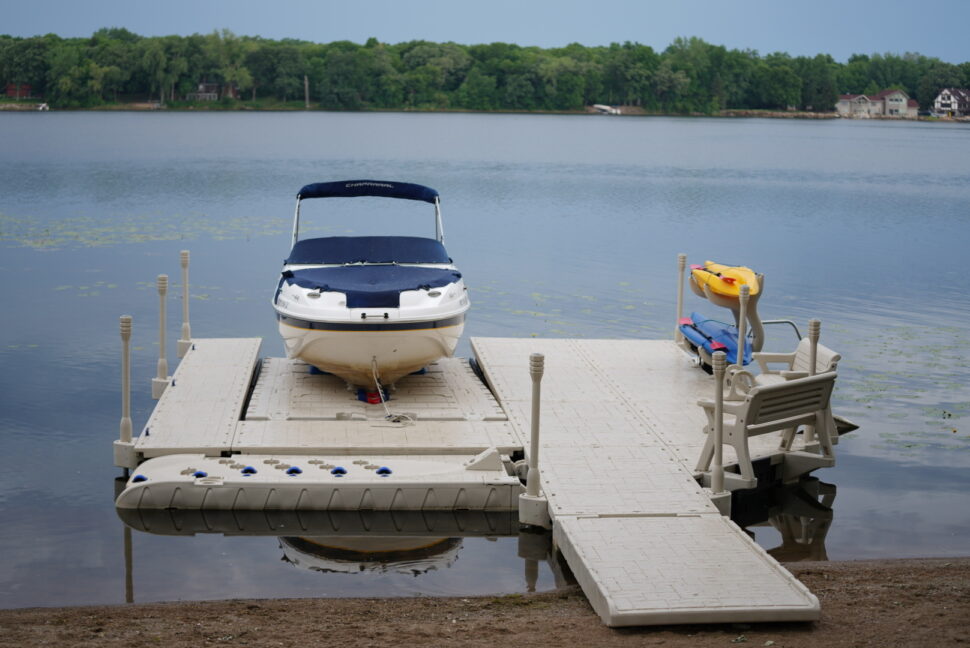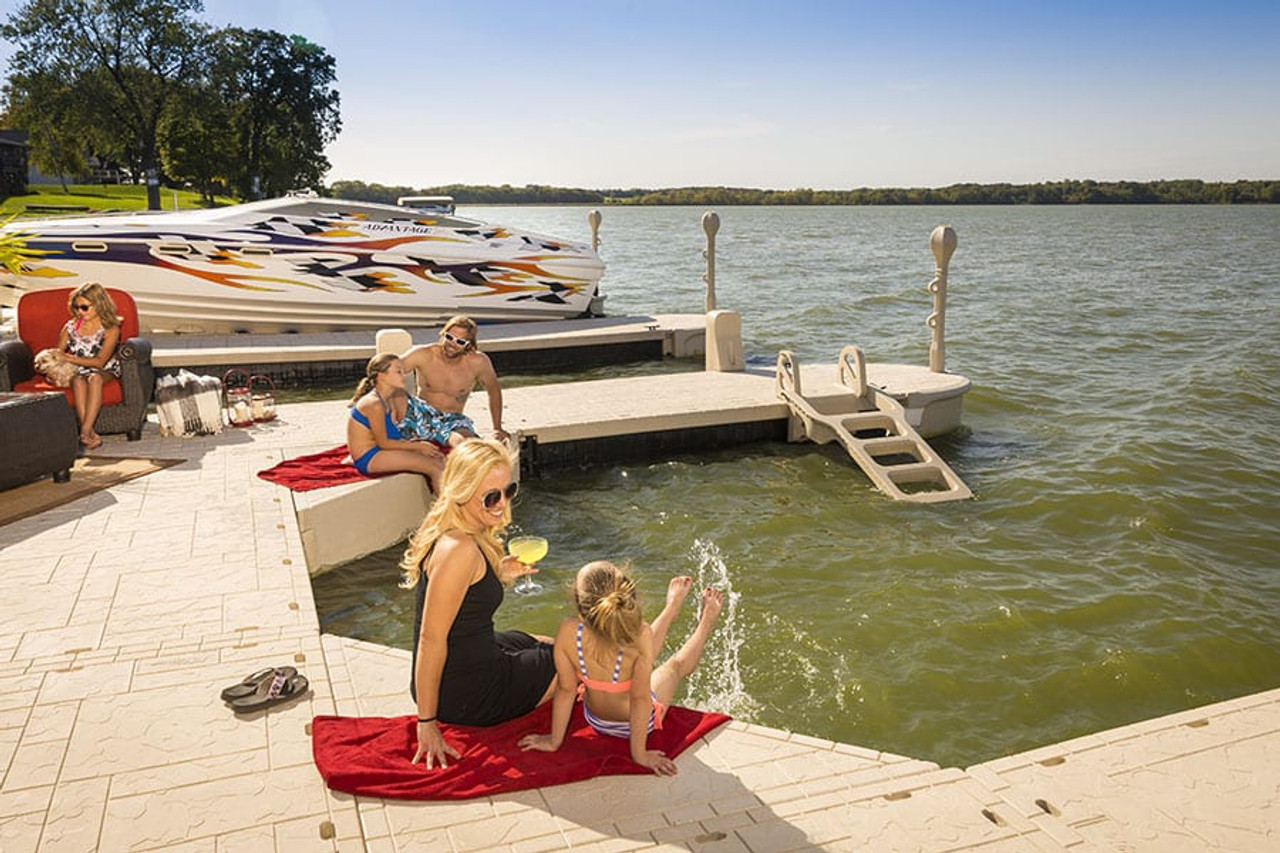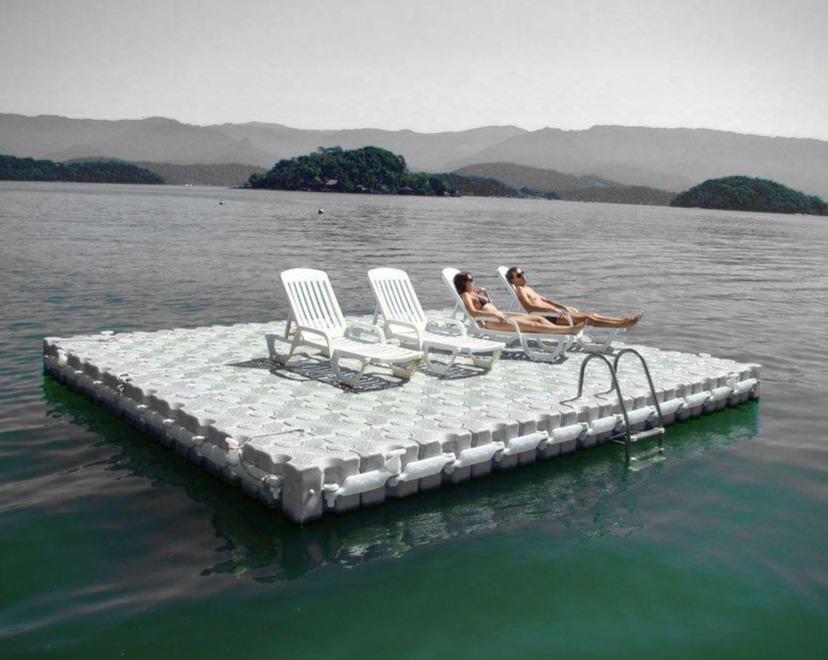The Ultimate Overview to Selecting the most effective Floating Docks
Choosing the excellent floating dock needs a comprehensive understanding of numerous elements that influence both performance and long life. Variables such as dock kinds, materials, and crucial features considerably influence your decision-making procedure.
Comprehending Floating Dock Types
When selecting a floating dock, it is important to comprehend the different kinds available, as each serves distinct functions and applications. Floating docks largely come under three classifications: modular, stationary, and pontoon docks.
Modular docks are made up of individual areas that can be conveniently set up or reconfigured, making them ideal for altering water levels and varied usages, such as recreational activities or industrial operations. Their versatility enables for personalization based on details demands.

Pontoon docks are identified by their resilient structure, frequently composed of numerous pontoons that give security and support. They are specifically appropriate for bigger vessels and are generally made use of in marinas or for waterfront properties. Understanding these types help in choosing the most suitable floating dock to meet particular demands, guaranteeing optimal capability and safety.
Trick Products for Sturdiness
Choosing the ideal materials for floating docks significantly impacts their longevity and durability. One of the most usual materials include wood, plastic, steel, and composite products, each offering unique benefits and restrictions.
Timber, typically preferred for its visual allure, needs regular upkeep to endure moisture and decay. Pressure-treated lumber can improve resistance to rot, however it might still be prone to insects and weathering.

Plastic docks, made of high-density polyethylene (HDPE), are immune to rust, UV radiation, and influence, making them a prominent option for coastal environments. Their lightweight nature likewise helps with very easy installation and relocation.
Metal docks, normally built from aluminum or galvanized steel, supply outstanding strength and sturdiness. They are resistant to corrosion, particularly when dealt with, but might require added insulation to avoid warm build-up in hot climates.
Composite products, incorporating timber fibers and plastics, supply the benefits of both wood and plastic, resisting wetness and fading while needing minimal maintenance. - dock company
Ultimately, the choice of materials need to line up with environmental problems, planned use, and upkeep preferences to guarantee the floating dock continues to be useful and aesthetically pleasing in time.
Crucial Functions to Take Into Consideration
While the choice of materials is vital, thinking about important features for floating docks is similarly essential to ensure optimal efficiency and user fulfillment. One key function to analyze is the dock's buoyancy capability, which determines exactly how much weight it can sustain without submerging. floating dock builder. This is essential for fitting watercrafts, individual boat, and also leisure tasks
Furthermore, mobility is a considerable consideration. Relying on your needs, you might want a dock that is simple to carry and take apart, specifically if you plan to move it seasonally. Stability is another crucial feature; a properly designed floating dock must decrease activity triggered by wind and water currents, providing a safe platform for individuals.
Safety functions, such as Click This Link non-slip surfaces and rounded sides, are also important to avoid crashes, especially in damp problems. In addition, think about the accessibility of devices, such as bumpers, ladders, and cleats, which can improve the performance of your dock.
Installment and Upkeep Tips
Establishing and keeping a floating dock calls for cautious planning and focus to detail to ensure its long life and optimal performance. Begin by picking a suitable place that reduces exposure to solid currents and waves, which can cause damage. Make sure that the water deepness suffices for the dock's height and that it is secured securely to avoid movement.
Throughout installation, adhere to the producer's standards carefully, as incorrect assembly can compromise security. Use premium products resistant to corrosion, such as aluminum or treated timber, to enhance durability. Consistently evaluate all parts, consisting of floats, ports, and securing systems, for signs of damages or wear.
Maintenance is important for prolonging the life of your dock. Clean the surface areas regularly to stop algae buildup and look for any loosened installations that might require firm. Guarantee they stay totally free and undamaged from slits if your dock utilizes flotation protection devices. Additionally, take into consideration using safety finishes to wood elements to decrease weathering impacts. By adhering to these setup and upkeep ideas, you can appreciate a practical and reliable floating dock for years to come.
Budgeting for Your Dock
Budgeting for your dock is a vital action that can substantially impact your overall complete satisfaction and investment in a beachfront property. Establishing a clear spending plan assists you navigate the different options offered and guarantees you make notified choices that straighten with your economic capabilities.
Begin by figuring out the size and layout of the dock you call for, as these elements will significantly influence the expense. Floating docks can vary considerably in cost, depending on materials, buoyancy, and attributes like ramps and accessories. Research study different producers and distributors to contrast rates and recognize the market worth.
Along with preliminary expenses, think about continuous expenses such as upkeep, insurance, and possible repair services. Designate funds for these reoccuring costs to prevent surprises down the line. It's likewise sensible to allocate any necessary licenses or assessments, which might be needed by local guidelines.
Last but not least, keep in mind the potential return on investment. A tactical dock can improve your home's worth and appeal, providing a positive monetary impact in the long-term. By budgeting successfully, you can guarantee that your dock meets your demands without endangering your economic security.
Verdict
In conclusion, selecting the ideal floating dock necessitates a thorough examination of numerous aspects, consisting of dock types, products, necessary attributes, and installation processes. Careful consideration of financial constraints will certainly better make sure a sound investment.

While the option of materials is essential, thinking about important features for floating docks is equally crucial to make certain optimal performance and customer fulfillment.Establishing up and keeping a drifting dock requires cautious preparation and interest to detail Discover More Here to ensure its longevity and optimal performance. Floating docks can vary dramatically in rate, depending on materials, buoyancy, and attributes like ramps and accessories.In final our website thought, picking the suitable floating dock necessitates a thorough examination of numerous elements, consisting of dock types, products, important features, and installation procedures.